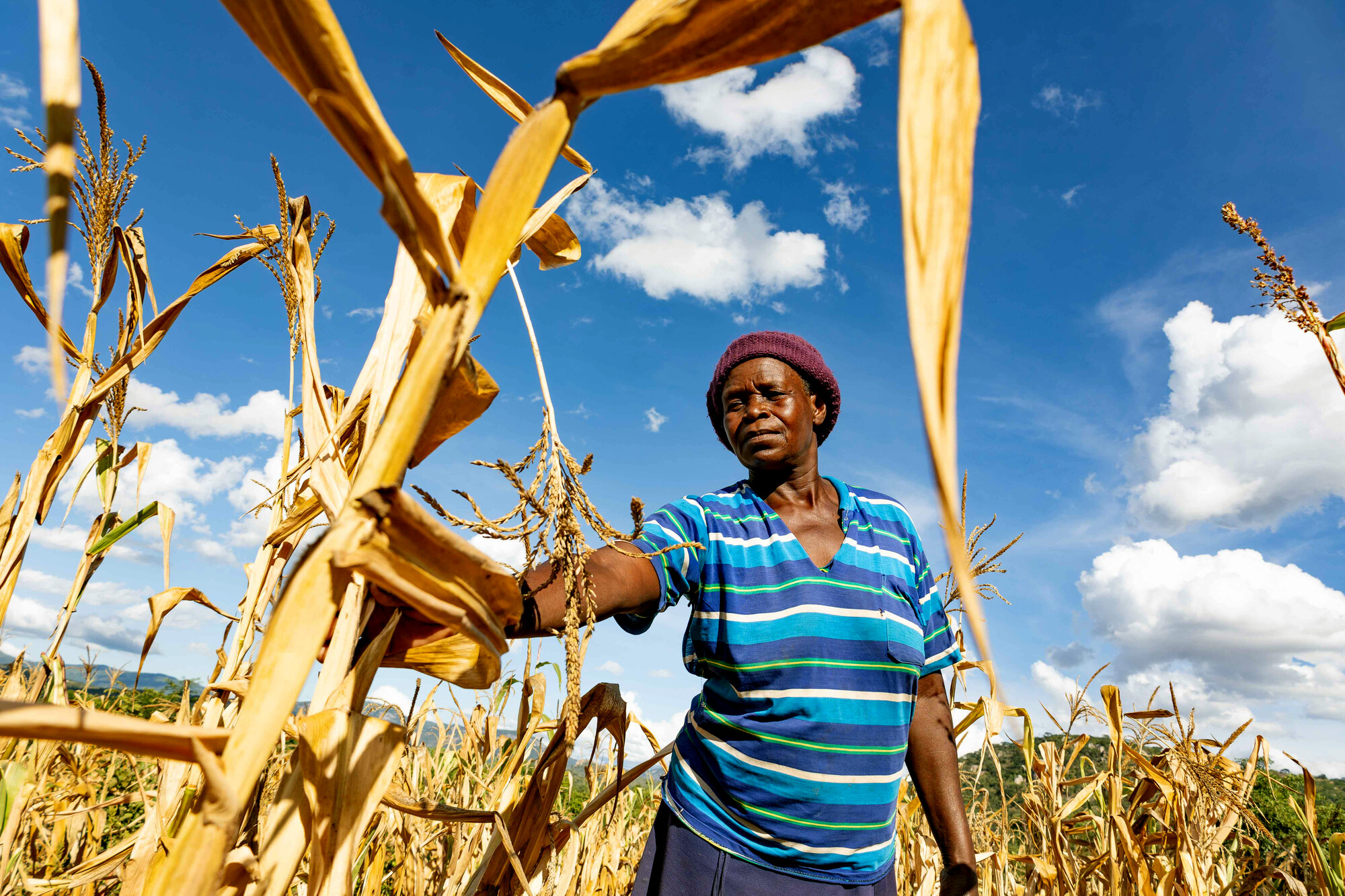2024 pushed humanity to its edge. Wars raging, waves of climate change shocks, political instability, economic turmoil and increasing inequalities worsened devastating humanitarian crises globally. Yet, even in the face of so many challenges, communities across the globe have risen with remarkable courage, rebuilding, and planting the seeds for a different way forward.
Through working alongside many of these communities, CARE and our partners captured fascinating moments in 2024’s complex net of events in over 5,000 photos and videos. Our Global Photo Library Coordinator Chandra Prasad – a seasoned photographer with over 30 years of experience – took the monumental task of selecting the 10 most impactful ones. His choices were guided by the universal human emotions these images evoked—emotions he connects with every day as he sifts through the stories they tell.
Strength
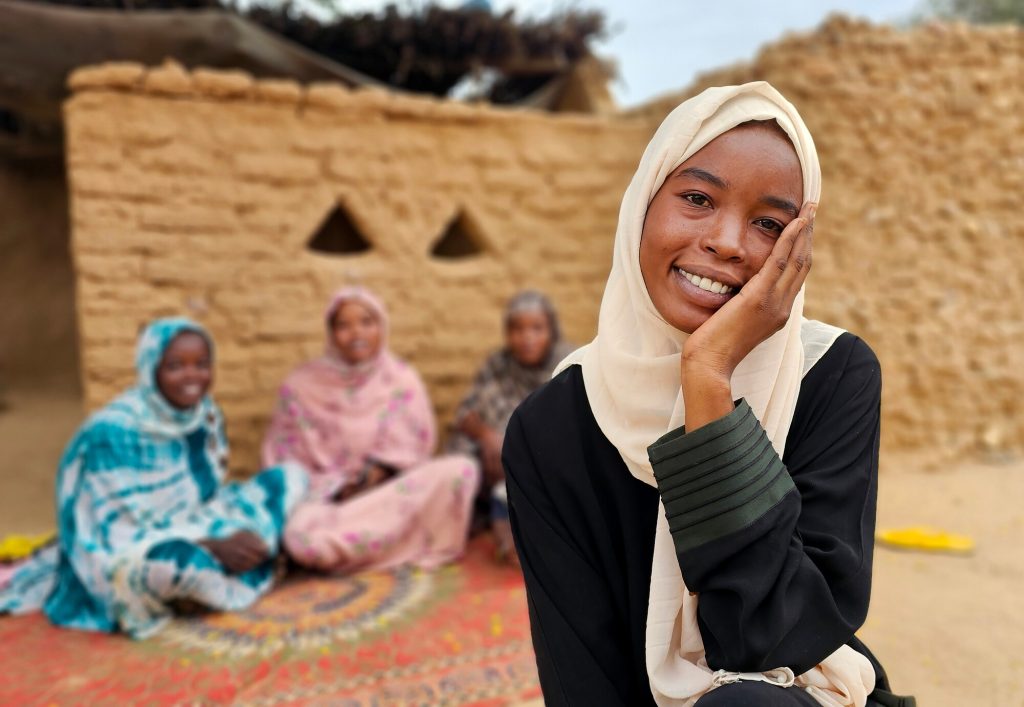
23-year-old Sudanese refugee Teissir with her three sisters in the background at a displacement camp in Chad. Having survived what CARE has called a war on women and girls, Teissir’s smile shows her incredible courage. The sisters fled Sudan under heavy crossfire, losing their parents in the chaos of flying grenades and desperate people running. After a 10-day journey, they arrived in neighboring Chad where they are learning construction skills to build their own home.
The war in Sudan has made it the world’s largest displacement and hunger crisis.
Sorrow
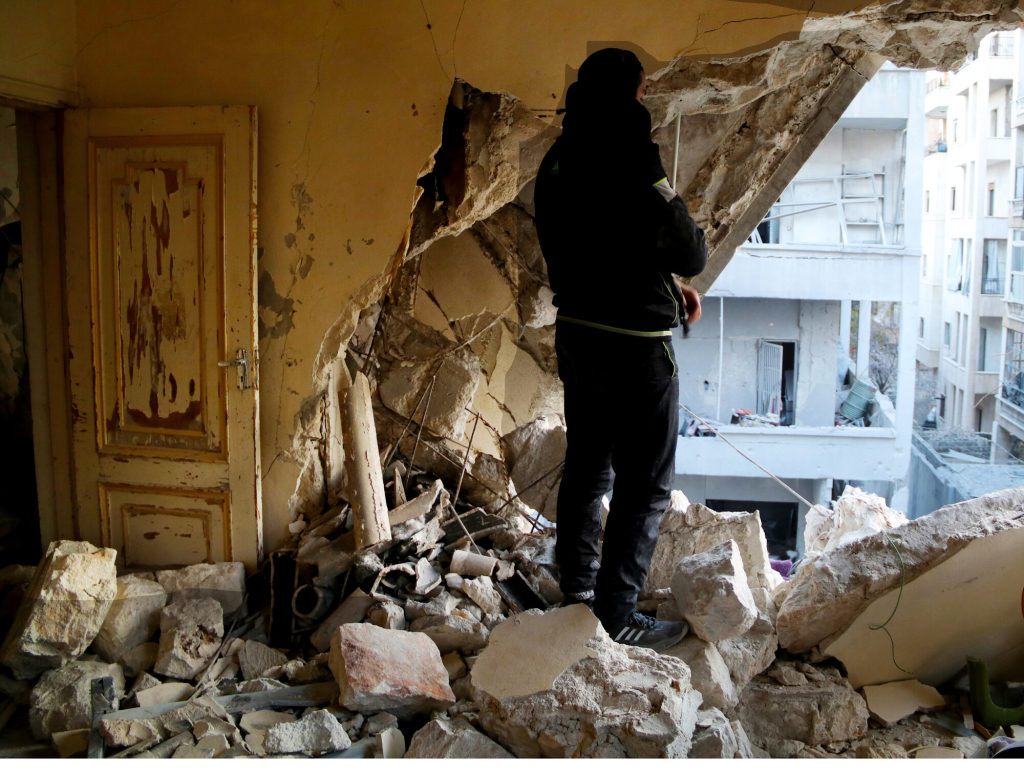
A man stands amid the rubble of a building in Idlib, Syria after an airstrike targeted a health facility complex and other civilian areas in December. In nearly 14 years of war, scenes of destruction unfortunately became common in the country. However, recent events have sparked a glimmer of hope for what could be a brighter future for Syria.
Life
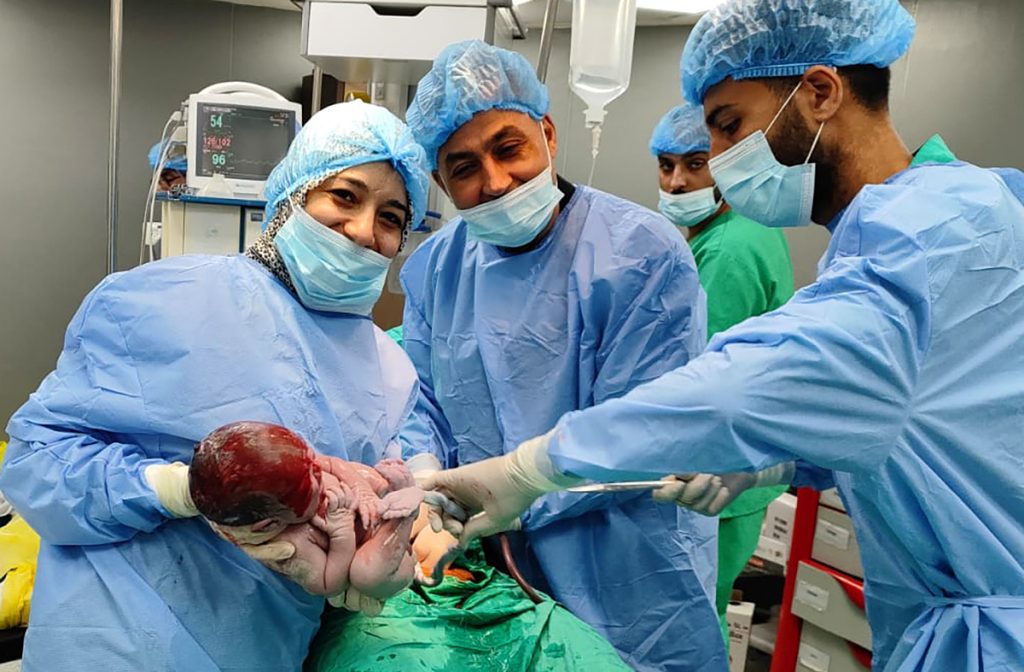
Amid the catastrophic suffering in Gaza, in June doctors celebrated the safe delivery of baby Laila* in one of the few remaining hospitals. Her mother, Zenab*, described the conflicting emotions she felt before giving birth: “I am terrified. At the same time, I cannot wait to hold my baby in my arms. It is strange having these feelings of horror mixed with something so beautiful”. Zenab*’s husband was killed at the start of the conflict and she is currently living in a tent with Laila* and her older daughter.
The people of Gaza continue to suffer from this devastating war that has killed at least 40,000 people and displaced almost the entire population of two million.
Joy
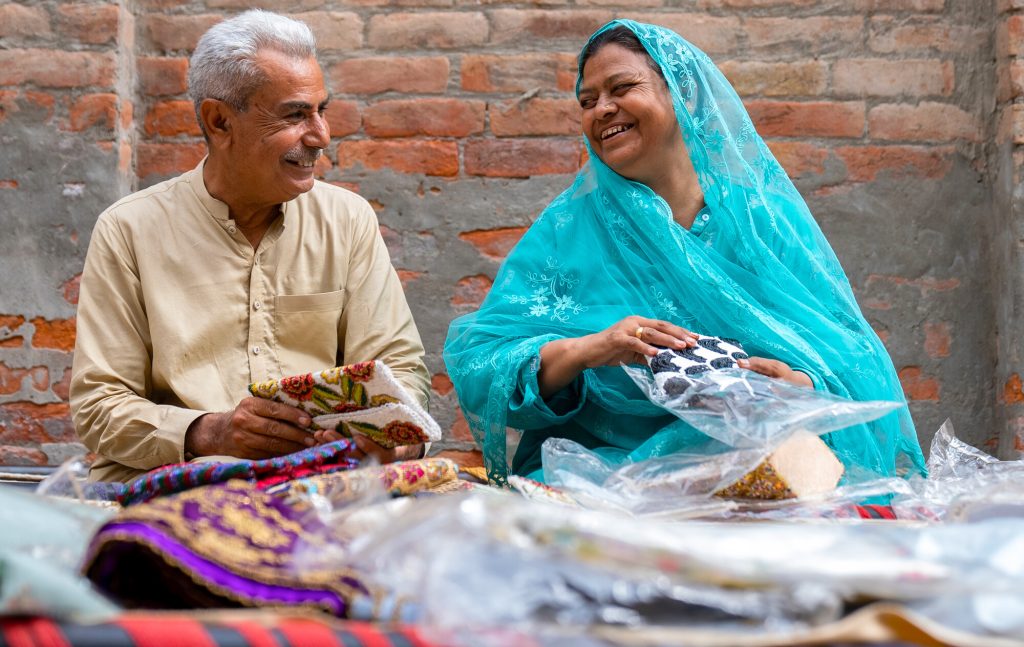
Shajahan and her husband laugh while they sift through the products of Begum’s shop in Pakistan. She is an entrepreneur and participant in Strive Women, a program led by CARE and supported by the Mastercard Center for Inclusive Growth, which strengthens the financial health of women-led small businesses. The program addresses the unique barriers faced by women-led businesses, such as limited access to credit.
Disbelief
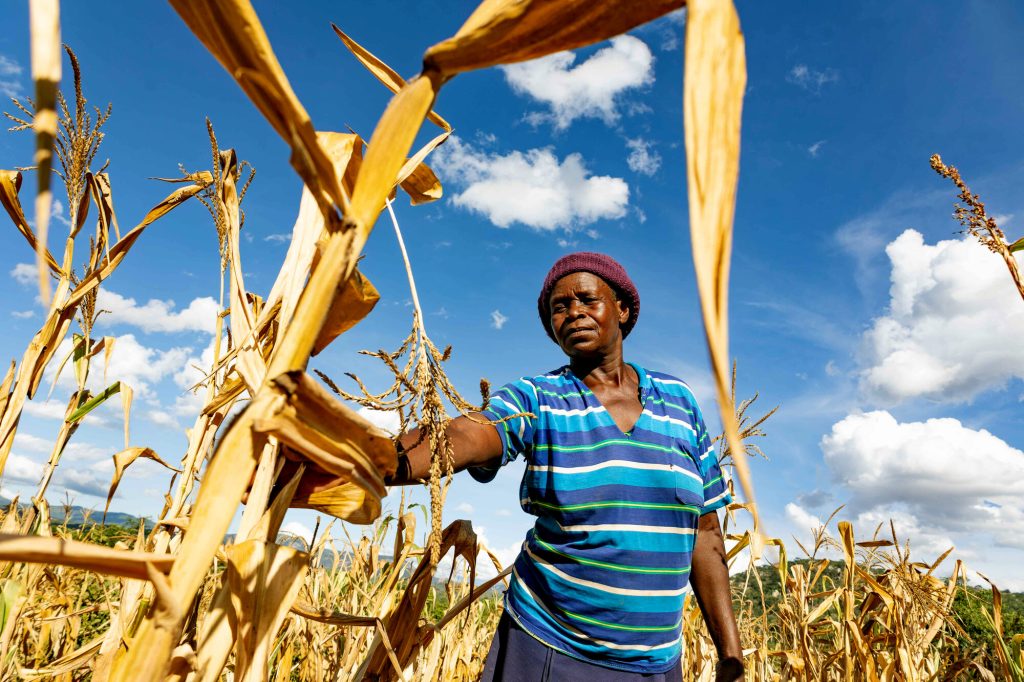
Zimbabwean farmer Anna sees the state of her stunted maize plants during an El Niño-induced drought in April. The drought in Zimbabwe and other Southern African countries has severely impacted food production, increasing the number of people facing hunger and forcing national governments to declare a state of national disaster.
Pride
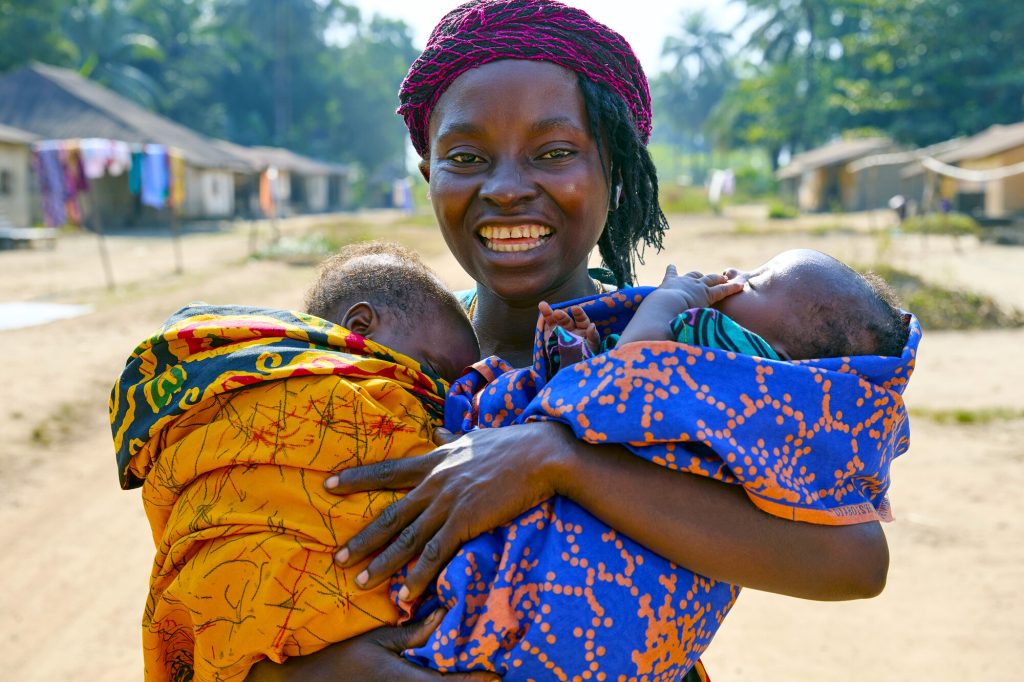
Isatu, a community leader in Sierra Leone, smiles while she holds two of her four children. Isatu is the sole provider for her kids and is determined to help her community navigate multiple challenges, especially around poverty and inequality – a remarkable example of women’s leadership.
Determination
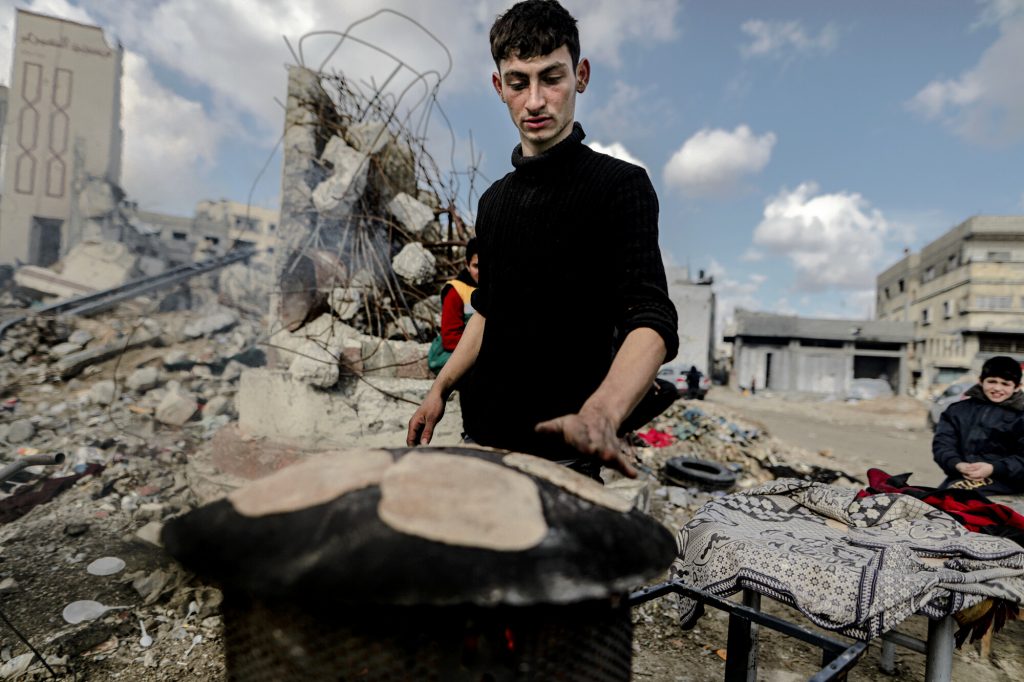
A Palestinian man baking bread over a wood fire due to the lack of cooking gas and electricity in Northern Gaza in January. Nearly one year after this photo was taken, Israel’s actions continue subjecting 2 million Palestinians in Gaza to starvation, mass forced-displacement, inhumane living conditions and death. Nine out of ten people are displaced from their homes and struggle to secure one meal per day.
Leadership
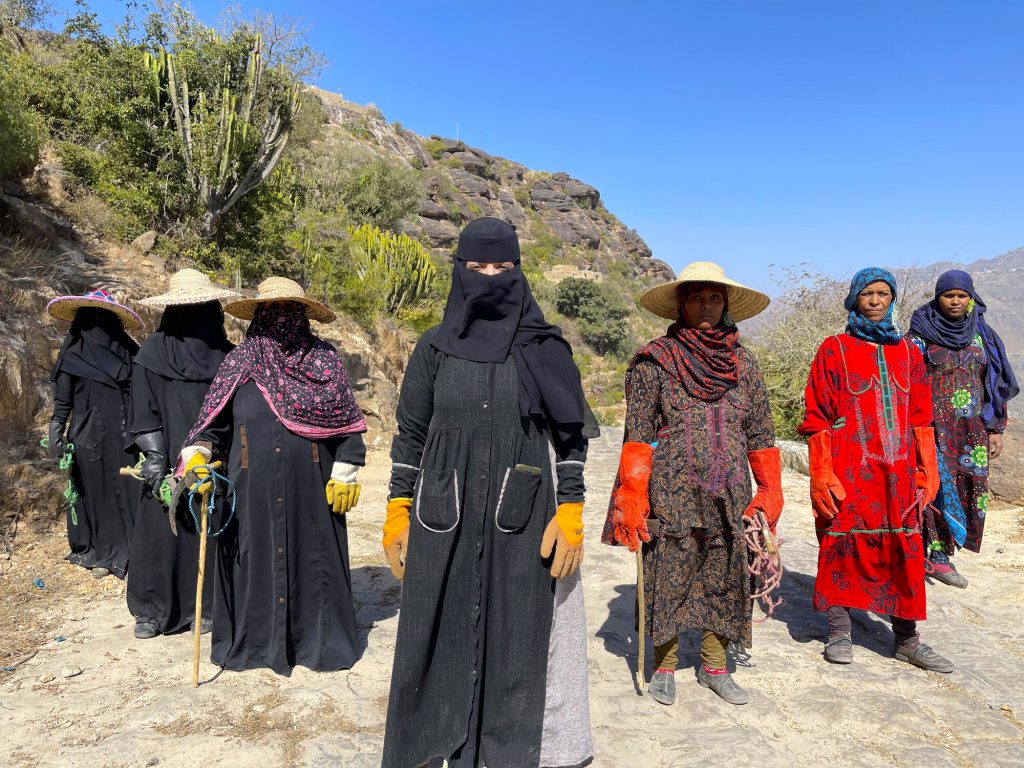
Nada alongside part of her women’s group, took the initiative to clear debris from the main road connecting their village in Yemen. Following their leadership, CARE, funded by BMZ, helped to pave the road, restoring access to essential services. Women like Nada and her group help lead resilience and recovery amid the devastating impacts of nearly a decade of war in Yemen.
Warmth
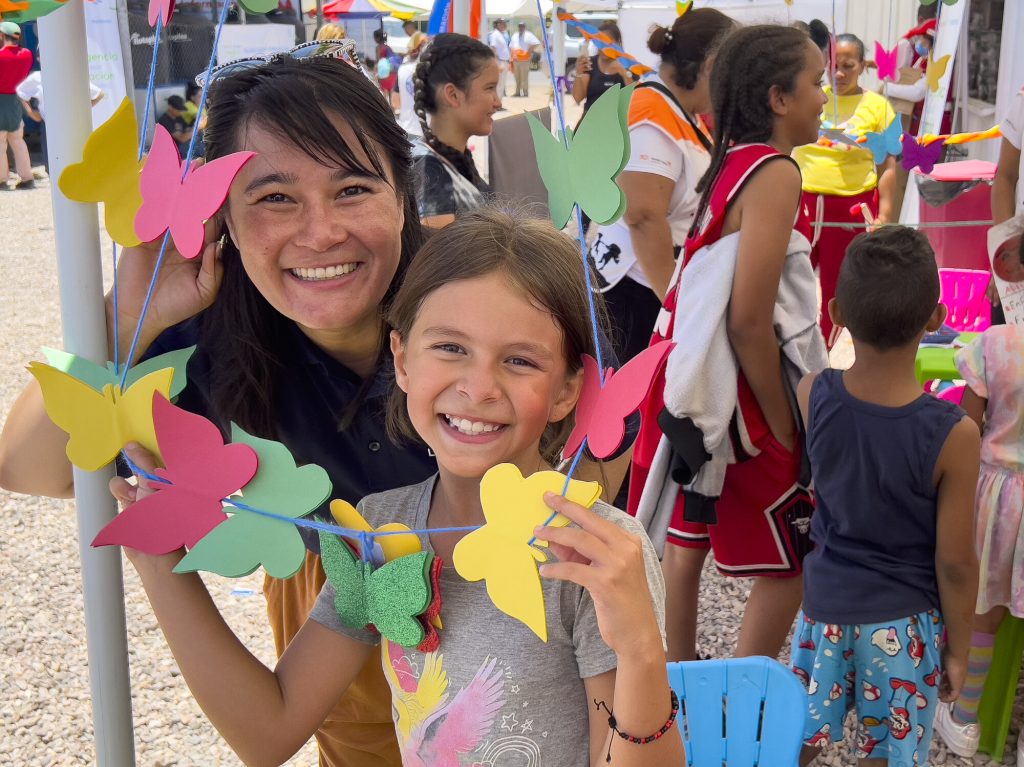
9-year-old Julieta* enjoys making crafts at the Pescadero migrant site along the Honduras-Nicaragua border in April alongside CARE’s Kalei Talwar. Pescadero is a UN-run facility comprised of 39 different INGOs, including CARE, that provides an array of services to migrants.
A complex combination of gang-related violence, hunger, poverty, and climate change impacts have forced millions of people in Central America to go on dangerous journeys to seek asylum in other countries.
*Names changed to protect identity
